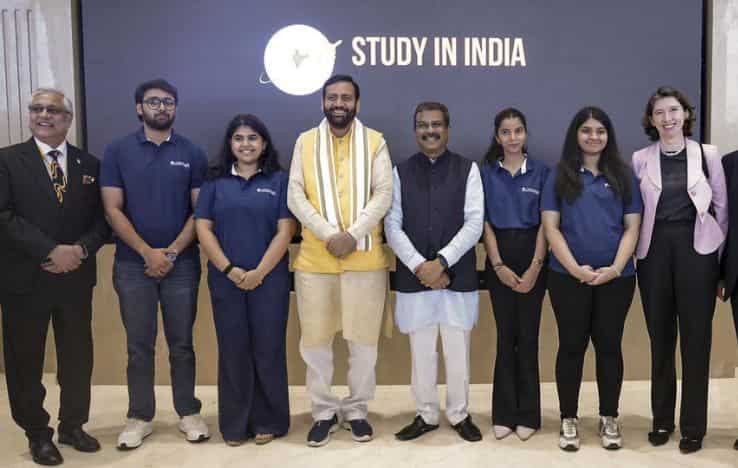Last Updated Sep - 15 - 2025, 11:09 AM | Source : Fela news | Visitors : 26
Exploring how global education methods can enrich India’s system through innovation, inclusion, and localized application.

India is standing at the initiates of an educational transformation. The world has seen innovative school models, inclusive methods of teaching, and technology-enabled learning that bridge gaps. The question is: how can India absorb those lessons without losing its cultural grounding?
One key idea is contextual adaptation. Educational practices from abroad blended learning, peer teaching, project-based approaches work well when adjusted for local realities: class sizes, resource availability, linguistic chaos, and community expectations. Simply importing models doesn’t guarantee success. Rather, reversible pilot programmes, teacher training, and continuous feedback can help tailor global best practices to local needs.
Inclusion must be central. Many global models succeed because they integrate children with varied learning abilities, socio-economic backgrounds, and even special needs. India, with its huge diversity, can benefit if curricula and assessment recognise differences, and schools build supportive infrastructure. Technology, when used thoughtfully, can make this feasible: remote learning, adaptive assessments, and digital tools can assist both teacher and student.
Teacher empowerment is another crucial aspect. Globally, education systems that invest for continuous professional development, encourage innovation, also provide autonomy tend to show better learning outcomes. Indian teachers should be supported equally through training in new practice of learning, exposure to international practices, and opportunities to experiment on base level.
Finally, global education’s promise lies to making students not only with content knowledge, but with critical thinking, ethical way, collaboration, creativity. Bringing those time home means rebuild exams, classroom interactions, and how success is measured. If India can combine the best global ideas with its own wisdom, the result could be a system that is resilient, inclusive, and future ready.

Dec - 31
The Haryana Government has introduced a major change to the Haryana Civil Services examination framework, aiming to strengthen the selection proces... Read More

Dec - 24
The CAT 2025 results have been officially announced, bringing relief and excitement to thousands of MBA aspirants across India. Candidates can now ... Read More

Dec - 24
The revised syllabus for NEET UG 2026 has officially been released, bringing much needed clarity to thousands of medical aspirants preparing for on... Read More